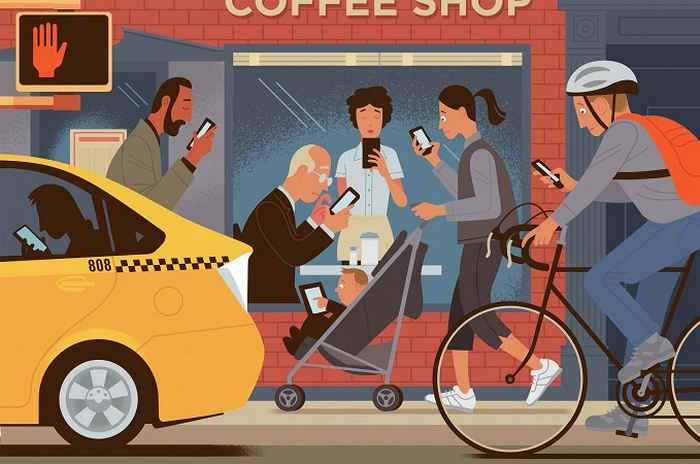The study programme
The programme
Neuroeconomics is one of the tracks of the Master's Business Economics. During your Master's you will follow 5 general courses and 4 track-specific courses. You will finish with a thesis.
-
Compulsory courses
Applied Econometrics
In this course you learn about regression analysis. In applied economics this is a powerful tool to analyse empirical relationships. Particular attention will be paid to the statistical assumptions underlying the basic model. We will cover the analysis of: (1) experimental data, (2) panel data and (3) time series.
Games and Strategy
In this course we use game theory to analyse optimal strategies for firms. After discussing the main concepts of game theory we apply these concepts to business strategy. We distinguish between the internal context and the external context of the firm.
Behavioural Economics
Classic economics assume agents to be rational and selfish. Behavioural economics challenge both assumptions. You will study individual choice: bounded rationality concepts in decisions under uncertainty, information processing, judgement, time preferences and heuristic decision-making. Also you will explore strategic interaction, especially social preferences and reciprocity.
Experimental Economics
In this course you will learn the basic methodology of experimental economics: how to design a simple experiment, including writing instructions. You will practice both with laboratory and field experimentation evolving around industrial organisation, labour economics, behavioural economics and individual and group decision making.
Research Seminar
Formulating a good research question for your thesis can be challenging. This course helps you find one, by discussing your ideas with faculty members and fellow students.
-
Track-specific courses
Brain Organisation and Cognition for Behavioural Scientists
Each week an expert from the field will teach you about a specific topic related to the cognitive and affective neuroscience field. All topics covered are highly relevant as they contribute fundamental cognitive and emotional processes in decision-making. You will learn about topics such as: neurons and synapses, brain anatomy, attention, memory, learning, emotions, and decision-making.
Neuroeconomics
In this course you will become familiar with neuroeconomics: a relatively new field of research. You will learn to understand its relevance for understanding economic behaviour. Topics you will cover are: (1) the mechanics of the brain and the techniques and methods used by neuroeconomists, (2) the value systems determining behaviour: goal-directed, habitual, and Pavlovian and (3) the interaction between emotion and cognition. Expect firing discussions on (potential) applications and ethical issues.
Neuroeconomic Methods for Behavioural Scientists
This course introduces you to neuroscientific methods commonly used in neuroeconomics, social neuroscience and related disciplines. Focus is on functional Magnetic Resonance Imaging (fMRI), the most common research method in the field. You will learn about the physiological basis of the BOLD signal and how to use fMRI to identify the processes involved in decision-making. In tutorials you will gain hands-on experience with pre-processing and analysing fMRI data with the software package SPM 12.
Introduction to MATLAB Programming for Behavioural Scientists
The course will comprise a basic introduction to MATLAB, designed to be suitable for students with little or no prior programming knowledge. The programme will be based on introductory lectures and hands-on assignments, with the help and supervision of expert programmers. During the 1st part of the course, students will learn to apply basic functions and code in MATLAB. Building on the acquired knowledge, students will then be guided to program different tasks to acquire actual behavioural data.
-
Thesis
The academic programme culminates in a thesis, which allows you to engage with state-of-the-art data analysis and statistical techniques. The Master’s thesis is the final requirement for your graduation. It is your chance to dive deep into a topic in your field of choice (track) that you are enthusiastic about, and allows you to do an independent research project. A professor of your track will supervise and support you in writing your thesis.
-
Honours programme
If you are a student of the Master's Business Economics and you have a record of academic excellence, a critical mind and an enthusiasm for applied research, then our Business Economics Honours programme is a great opportunity for you.

I enjoyed the integration of neuroeconomic research into the economics courses taken by students of all tracks.Kerstin Wehmeyer - student Read Kerstin's full review
Associate Professor Giorgia Romagnoli and student Melchior explain.

A newspaper headline stated that brain scans reveal that we literally love our iPhones. However, this is a clear misrepresentation of scientific results. Unfortunately such overstatements are relatively common in the public press. As a student in the Neuroeconomics track, you will learn to correctly employ scientific methods in research settings and critically evaluate scientific findings.

I got to learn from the best of the bestMatthew White - track Neuroeconomics Read about Matthew's experiences with this Master's
-
When do I need to select a specialisation track?
A specialisation track must be chosen when applying for the Master’s programme. However, track modifications are still possible until late October. The criteria for all tracks are identical and do not impact the likelihood of being accepted into the programme.
-
How many students are in the programme?
Our Master’s programme admits around 35 students per specialisation track. If you meet the entry requirements, you will always be accepted; this Master’s does not have a numerus fixus.
-
What are the weekly contact hours?
Most courses have one 2-3 hour lecture and one 2-hour tutorial per week. Generally students take 3 courses at a time, so count on about 12-15 contact hours per week.
-
Will all lectures be held in person, or will there be options for online attendance?
Our preference is for in-person lectures. Certain sessions may be pre-recorded or follow a hybrid format. This entails preparing for Question and Answer (Q&A) sessions through video clips and readings, with subsequent online discussions during meetings.
-
Is attendance compulsory for lectures, tutorials, and other sessions?
Attendance is usually not compulsory for lectures, but commonly for tutorials and other sessions. Students greatly benefit from being present and engaging in discussions with both the instructor and their classmates.
-
What is the typical method of assessment for most courses?
The majority of courses have a written on-site exam, which counts for a large percentage of the final grade. Most courses have additional assessment methods, including oral presentations, developing research proposals, conducting experiments and writing up results. Finally, some courses grade attendance, which is reflected by presence and activity in tutorials and online assignments.